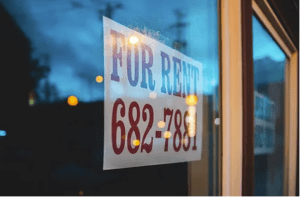
Costa Rica real estate
Costa Rica Country Guide
Everything you need to know about moving to Costa Rica
How to Purchase Real Estate in Costa Rica
Costa Rica offers the same protections around real estate for expats as it does for locals
Purchasing property in Costa Rica can be a gateway to a dream life, a great investment, or both. Expats can own property in Costa Rica, although the process to secure the property of your choice is different than what you might be used to in your home country.
Navigate page
Costa Rica Real Estate Purchase Process Overview
Here is a rough outline of what the real estate purchasing process generally looks like in Costa Rica:
- Understand your nice-to-haves vs. need-to-haves: Many potential buyers dream of certain types of properties with access to everything. In practice, finding the right property in Costa Rica for you often requires trade-offs. These can be difficult decisions. It can help to hone in on the right town/region to focus your energy, and the right homes to prioritize, to make a list of what is absolutely essential in your new home, vs. what would be nice but not necessary.
- Plan an exploratory trip: Before you make a big investment, make sure that you take the time to find the perfect spot for you and your family. We recommend taking at least one scouting trip, visiting multiple locations, and trying to spend as much time in several different places before purchasing a property.
- Work with a buyer’s agent: There is no MLS system in Costa Rica, which has created relatively informal, opaque, locally-driven markets. This can disadvantage buyers, specifically if they are not particularly familiar with how things work in Costa Rica. Agents may have incentives to push prospective buyers towards certain properties, whether they are right for the client or not. Buyer’s agents do receive property commissions, but typically do not represent specific properties they are promoting, and therefore represent the buyer’s interests.
- View listings: This step can help you understand the market and narrow down your options. View a number of properties in your selected area at various price points. Be willing to wait if you do not find a place that meets your criteria.
- Secure a real estate attorney: It’s essential to enlist the services of a qualified real estate attorney (known as a notary in Costa Rica). The attorney will help you decide on the right ownership structure for your property.
- Put in an offer & negotiate: Your agent will help you make an offer on the property of your choice. Keep in mind that negotiating is expected. If the offer is accepted, you’re on your way! Some owners may accept financing deals.
- Seller Purchase Agreement: Sign the Seller Purchase Agreement. Your attorney will draft a Seller Purchase agreement outlining what you need to investigate during a due diligence period, as well as the closing date. During this stage, you’ll deposit an initial sum into the escrow account.
- Open an escrow account: Most real-estate transactions in Costa Rica are paid for via escrow accounts. Because money laundering laws are so strict in Costa Rica, a Costa Rican escrow company will have stringent documentation requirements that demonstrate the source of the money that will be used to purchase the home.
- Conduct due diligence: Your attorney will conduct a thorough title search, review the title commitment, ensure there are no liens or outstanding taxes owed on the home, verify water rights, assess property access, and more.
- Property inspection: This is the time to do things like home inspections, soil tests, etc. In Costa Rica, if due diligence reveals significant issues with the home, the buyer can walk away with the deposit. If the buyer pulls out without cause, the owner keeps the deposit.
- Complete the purchase: Buyer and seller will sign the final paperwork. The buyer will deposit the remaining sum into the escrow account. Once the money arrives in the seller’s account, the transaction is complete.
- Closing the deal: The final step involves completing the property transfer, disbursing funds, and officially registering yourself as the new owner with the Public Registry, which your lawyer will take care of. Once the government processes the transaction, and you receive the title in your name, you can change utilities into your name. Congratulations, you’re now a property owner in Costa Rica! Enjoy your new piece of paradise.
Not sure where to start?
Speak with an international relocation specialist for free
Things to Look Out For When Purchasing Property in Costa Rica
- Water rights: Ensure that the property you are purchasing has a water letter from the local authority, otherwise it could otherwise be extremely difficult to connect the property to the water utility, or not possible. Many expats have purchased properties only to find that they do not have access to water!
- Distance from natural bodies of water: Costa Rica has strict environmental protections which mandate that no construction can be done near bodies of water. The distances are different depending on the type of body of water. However, these laws can render some properties unbuildable.
- Concessions vs. titled properties: 95% of oceanfront property in Costa Rica are government concessions, meaning that the buyer is essentially leasing the land from the government for a fixed period (normally 20 years). These properties can still be a “safe” purchase, but do come with a number of important restrictions.
- Tourist agents: Costa Rica real estate has been experiencing a boom, which has brought a number of unqualified “tourist” real estate agents into the market. There is also no widespread MLS system in Costa Rica. Taken together, the real estate market in Costa Rica is a bit like the Wild West. There are many unscrupulous actors who might prey on expats on social media forums. The government is implementing more standards for real estate agents, so always make sure that an agent is a Costa Rican resident or citizen, is SUGEF certified, has a reputable online presence, and can connect you with you referrals.
How to Transfer Money When Buying a House in Costa Rica
When funding an Escrow account in Costa Rica, buyers typically make international transfers.
There are two companies that we recommend using to make international transfers: RegencyFX and Wise.
RegencyFX is one of the fastest-growing, privately owned currency exchange companies in the world.
Regency FX is a simple, easy way to
guarantee one of the best exchange rates on the market. RegencyFX assigns a dedicated account manager to each client, so it is a great option if you are looking for hands on, tailored support. You can learn more about RegencyFX HERE.
StartAbroad does have a partnership with RegencyFX, and may earn a commission on sales made through this platform. RegencyFX makes.
Wise is one of the largest is an excellent option if you have a straightforward transaction to make. Wise offers excellent exchange rates, and is very easy to use. You will not receive any hands-on guidance or support, but it gets the job done quickly and easily.
Regardless of how you transfer money to Costa Rica, keep in mind that the receiving bank may take a commission. This is the responsibility of the buyer to cover.
Is Financing Available for Expats Purchasing Property in Costa Rica?
Traditional financing: Historically, it’s been very difficult for non-residents to secure financing in Costa Rica. As of 2023, some private banks in Costa Rica are now offering financing to foreigners looking to buy vacation homes abroad. Prominent banks like Banco Lafise, Bac San Jose, and BCT have entered the fray. They usually provide terms of up to 20 years with a 30 to 50% down payment and interest rates ranging from 8.5% to 10%.
Private lenders: Private lenders may require a property evaluation (costing between $500 and $1,000) and ask for financial documents, including bank statements, income proof, and the source of funds. Each lender sets its specific requirements, potentially financing up to 70% of the property value or cost, with terms of up to 15 years and interest rates between 8% and 16%. Be sure to clarify their conditions before proceeding with the process.
Seller financing: When it comes to sellers offering financing in Costa Rica, you’ll often find they’re more accommodating with the required documentation. Their main goal is to facilitate the property sale, and while many prefer cash transactions, they’re open to financing as a means to attract buyers. Unlike traditional lenders, sellers might skip the property evaluation step because they already know their property’s value. Proof of income can be either requested or not, varying from one seller to another.
Associated Costs When Purchasing Property in Costa Rica
- Real estate agent fees – 4-10%, and usually 5-6%. These are typically paid by the seller.
- Transfer tax -1.5% of either the property valuation or purchase price, whichever is higher
- Stamp fees (ie: Registration, Agrarian, Municipal, Bar Association, etc) – 0.84-1% of purchase price
- Notary + legal fees – 1-2% of purchase price. These are typically paid by the buyer, unless stipulated otherwise in the contract.
- Escrow services – $300-$1000, but sometimes a percentage of total transfer value
Note: A 13% VAT tax is applied to all legal and escrow service fees
Property Taxes in Costa Rica in Costa Rica
0.25% of the assessed value of the property, annually. For properties with values above CRC 137 million (2022) you will also have to pay a luxury tax of 0.25-0.55%.
Helpful resources



How to Find a Doctor in Costa Rica as an American or Canadian Expat
Costa Rica client reviews

We would highly recommend using StartAbroad for your relocation needs… [Their relocation] program is very comprehensive and they anticipated our every needs to make sure that our move went smoothly.
We would have made many mistakes on our own… [StartAbroad was] worth every penny and now looking back we can’t imagine having made this move without their assistance.
Clay & Sarah (& Sam)
Costa Rica Concierge Clients

It was an ultimate pleasure working with StartAboard, from start to finish they took care of every minor detail. Their service took loads of pressure off my hands as you can imagine all the small details and variables you have to consider when moving to a different country.
I would highly recommend StartAboard if you are looking to relocate.
Reggie W.
Costa Rica Concierge Client

[The team at] StartAbroad were absolutely fantastic… These guys saved our family so much time – it’s quite difficult to quantify the value of their service. One thing for sure, for the small amount that they charged us for facilitating our digital nomad visas – in comparison to the huge amount of time we saved, is substantial!
Very pleasant to work with, very professional, clearly they care very much about what they are doing and their work reflects this.
Mateo
Digital Nomad Visa Support
Join our mailing list
Receive monthly newsletters, special offers, insider information, and more.



